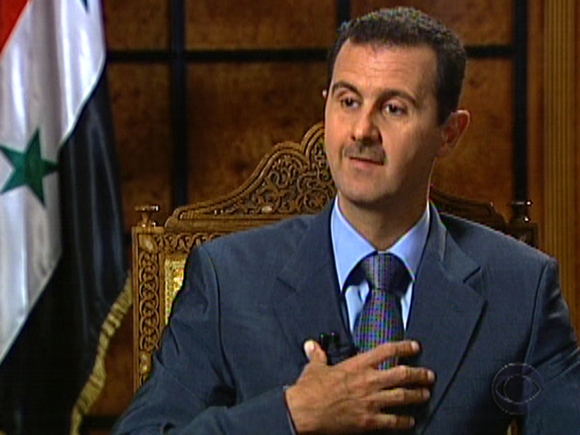Syria to allow other parties alongside ruling Baath
AFP
DAMASCUS- Syria's government, under massive pressure to reform or quit, has adopted a draft law allowing for new political parties to operate alongside the ruling Baath party.
However, the crackdown on dissent forges on, with security forces deploying in their hundreds in the Damascus neighbourhood of Rukneddin on Monday to carry out searches and arrests while more tanks moved into Homs, activists said.

The aim is to create a "new dynamic and allowing for a change in political power" in Syria, one of the Middle East's most autocratic countries which has been under Baath rule for nearly five decades.
Protesters defying the regime of President Bashar al-Assad in almost daily demonstrations since March 15 have been demanding democratic changes, including an end to Baath hegemony.
The current constitution stipulates that the Baath party, in power since 1963, is "the leader of state and society."
According to SANA, the draft law adopted by the government bans the creation of parties based on "religion, tribal affiliation, regional interests" as well as those that discriminate along racial lines or gender.
The draft law also stipulates that "party organs should not comprise any military or paramilitary elements, whether public or secret" and that objectives and funding must be clearly established.
Prime Minister Adel Safar, who formed his government in April less than a month after the former premier quit in the face of anti-regime protests, in June named a committee tasked with drafting a law on political parties.
Also in April, Assad signed a decree to lift almost five decades of draconian emergency rule and abolish feared state security courts.
But the efforts of Assad, in power since replacing his father Hafez as president in 2000, failed to garner popular support and protests have rocked Syria for more than four months, calling on him to quit.
Security forces have pursued campaigns of arrests despite the lifting of the state of emergency.
The authorities have used deadly force to quell dissent, with at least 1,486 civilians reported killed since mid-March, human rights groups say.
The violence has also claimed the lives of 365 members of the security forces and driven thousands to flee to safety outside Syria, and at least 12,000 have been detained.
On Monday, hundreds of armed members of the security forces deployed in the Damascus neighbourhood of Rukneddin, searching homes and making arrests, the Syrian Observatory for Human Rights reported.
Tanks also deployed in force on Monday in several districts of the central city of Homs, where more than 50 people were killed last week.
On Sunday, troops "arrested nine people in the district of Hajar al-Aswad and many others in Sahnaya," a suburb south of Damascus, the head of the London-based Observatory, Rami Abdel Rahman, told AFP in Nicosia by phone.
"Protesters demanding the fall of the regime marched on Sunday night in Hajar al-Aswad... in response to a campaign of arrests carried out earlier by the army in the capital," he said.
"More than 300 lawyers gathered at the courthouse in Damascus calling for the release of arrested lawyers and prisoners of conscience," he added.
Meanwhile the head of the National Organisation for Human Rights, Ammar Qorabi, told AFP on Monday that the authorities arrested a seven-year-old boy three days ago in Daraa -- southern hub of four months of anti-regime protests.
Qorabi said there has been no news about Naeem Fadl since his arrest.
He also voiced concern over the fate of Ahmed Abazid, 13, who was seized at the onset of the protests along with other boys for writing graffiti on walls calling for the fall of the regime.
Meanwhile, Germany said diplomats have met Syrian opposition figures in Damascus and Berlin in recent weeks as the European Union demands an end to the crackdown on protesters.
Berlin's coordinator for Middle East policy, Boris Ruge, met both opposition members and Syrian Foreign Minister Walid Muallem on two occasions, foreign ministry spokesman Martin Schaefer said.
Germany is one of the first Western countries to announce direct contacts with the Syrian opposition, which has held several meetings in Turkey.
At their July 18 meeting in Brussels, EU foreign ministers pressed Assad to implement reforms or stand aside as they threatened more sanctions.
-------------------------------------------------------------------------------------------